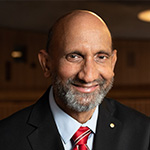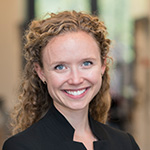Dielectric Science & Technology Division Thomas D. Callinan Award
Tuesday, 1400h / Sheraton – Exeter 3rd floor
Semiconductor Nanostructures for Optoelectronics and Energy Applications
by Chennupati Jagadish
Chennupati Jagadish is Distinguished Professor and Head of the Semiconductor Optoelectronics and Nanotechnology Group at the Research School of Physics, Australian National University. He currently serves as President of the Australian Academy of Science and in the past served as President of the IEEE Photonics Society and Nanotechnology Council, and Australian Materials Research Society. Prof. Jagadish is the Editor-in-Chief of Applied Physics Reviews, editor of two book series, and serves on editorial boards of 20 other journals. He has published more than 1,020 research papers (730 journal papers); holds seven US patents; coauthored a book; coedited 15 books; and edited 13 conference proceedings and 20 special journal issues. Prof. Jagadish is a Fellow of 12 science and engineering academies in Australia, US, UK, Europe, and India, and 14 professional societies including ECS, IEEE, Materials Research Society, and American Physical Society. He has received many awards including the IEEE Pioneer Award in Nanotechnology and Photonics Society Engineering Achievement Award; Optica (formerly OSA) Nick Holonyak, Jr. Award; International Union of Global Materials Research Societies (IUMRS) Sômiya Award; Welker Award; and Walter Boas, W. H. (Beattie) Steel, UNESCO, and Thomas Ranken Lyle Medals. Prof. Jagadish received Australia’s highest civilian honor, the Companion of the Order of Australia, for his contributions to physics and engineering, in particular nanotechnology.
Electronics and Photonics Division Award
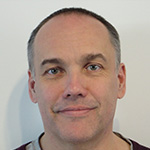 Tuesday, 1020h / Sheraton – Fairfax A
Tuesday, 1020h / Sheraton – Fairfax A
Epitaxy of Group-IV Semiconductors for Nanoelectronics and Optoelectronics
by Jean-Michel Hartmann
Jean-Michel Hartmann is a CEA Fellow at CEA-Leti (Commissariat à l’énergie atomique et aux énergies alternatives), operational manager of Leti’s team working on group-IV epitaxy, and his department’s scientific director. His research focuses on the reduced pressure chemical vapor deposition of group-IV semiconductors for nanoelectronics and optoelectronics.
Dr. Hartmann completed his PhD in Physics at Université Grenoble Alpes in 1997. His research focused on the solid source molecular beam epitaxy of CdTe/MnTe and CdTe/MgTe heterostructures for optical purposes. As a Postdoctoral Fellow at Imperial College from 1997 to 1999, he investigated the gas source molecular beam epitaxy of Si/SiGe heterostructures for modulated-doping field effect transistors (MODFETs). Dr. Hartmann began at CEA-Leti in 1999 as a Research Engineer. In 2007, he was named CEA Senior Expert, then CEA Research Director and CEA Fellow in 2016.
Dr. Hartmann won the 2017 Helmholtz International Fellow Award in recognition of over 10 years of collaboration with the Forschungszentrum Jülich (FZJ), initially on European projects and subsequently under the CEA-FZJ framework agreement. The collaboration resulted in approximately 70 joint papers in the fields of nanoelectronics and photonics with the latest focusing on GeSn-based components.
Energy Technology Division Research Award
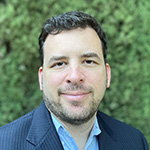 Monday, 0840h / Hynes Convention Center – Room 108
Monday, 0840h / Hynes Convention Center – Room 108
Multiphysics, Multiscale Modeling of Electrochemical Energy-Conversion Technologies
by Adam Z. Weber
Adam Weber is Senior Scientist and Leader of the Energy Conversion Group at Lawrence Berkeley National Laboratory and Co-Director of the Million Mile Fuel Cell Truck consortium. His current research involves understanding and optimizing fuel cell and electrolyzer performance and lifetime, including component and ionomer structure/function studies using advanced modeling and diagnostics, understanding flow batteries for grid-scale energy storage, and analysis of solar-fuel generators and CO2 reduction.
Dr. Weber holds BS and MS degrees from Tufts University and a PhD in Chemical Engineering from the University of California, Berkeley, under the guidance of John Newman. He is coauthor of over 200 peer-reviewed articles and 11 book chapters on fuel cells, flow batteries, and related electrochemical devices. Dr. Weber has developed many widely used models for fuel cells and their components, and been invited to present his work at various international and national meetings. He is the recipient of awards including a Fulbright scholarship to Australia; 2012 Presidential Early Career Award for Scientists and Engineers (PECASE); 2014 ECS Charles W. Tobias Young Investigator Award; 2016 Sir William Grove Award from the International Association for Hydrogen Energy; and a 2020 R&D 100 Award for microelectrode development. Dr. Weber is a Fellow of The Electrochemical Society and the International Association of Advanced Materials.
Energy Technology Division Graduate Student Award Sponsored by BioLogic
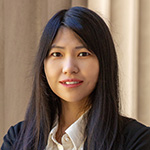 Tuesday, 1400h / Hynes Convention Center – Room 203
Tuesday, 1400h / Hynes Convention Center – Room 203
Probing and Engineering Electrode-Electrolyte Interfaces in Electrochemical Energy Storage and Conversion
by Yirui Zhang
Yirui Zhang is a Postdoctoral Scholar in the Dionne Lab at Stanford University. She completed her PhD in 2022 with Prof. Yang Shao-Horn in the Department of Mechanical Engineering at the Massachusetts Institute of Technology. She earned her BS from Tsinghua University, also in Mechanical Engineering. Her thesis focused on electrochemical energy storage and conversion, including Li-ion batteries and electrocatalysis. She developed in situ characterizations to probe the electrode-electrolyte interface and understand the interfacial molecular structures and electrochemical reactions. Dr. Zhang leveraged the physical chemistry of liquid electrolytes and tuned the molecular structure at the outer Helmholtz layer to notably improve the stability and kinetics of electrochemical reactions. Her work has been published in Energy & Environmental Science, Nature Catalysis, and other publications.
Energy Technology Division Supramaniam Srinivasan Young Investigator Award
Wednesday, 1150h / Hynes Convention Center – Room 208
Fundamental Insights into the Oxygen Evolution Reaction from Epitaxial Oxide Thin Films
by Kelsey Stoerzinger
Kelsey Stoerzinger is Assistant Professor in the School of Chemical, Biological, and Environmental Engineering at Oregon State University. Her research group focuses on designing and understanding electrocatalysts that are selective and efficient in converting and storing renewable energy and leveraging its use for molecular transformations and resource recovery. Stoerzinger holds a joint appointment at Pacific Northwest National Laboratory, where she was a Linus Pauling Distinguished Postdoctoral Fellow until 2018. She completed her Materials Science and Engineering PhD in 2016 at the Massachusetts Institute of Technology, supported by a National Science Foundation Graduate Research Fellowship. Prof. Stoerzinger received an MPhil in Physics from the University of Cambridge as a Churchill Scholar and BS from Northwestern University. She received the MRS Nelson “Buck” Robinson Science and Technology Award for Renewable Energy; ISE Prize for Electrochemical Materials Science; and the Intel Rising Star Faculty, National Science Foundation CAREER, and DOE (Department of Energy) Early Career Research Awards, in addition to recognition for her contributions as a teacher and advisor.
High-Temperature Energy, Materials, & Processes Division Subhash Singhal Award
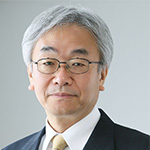 Monday, 1150h / Hynes Convention Center – Room 210
Monday, 1150h / Hynes Convention Center – Room 210
From Electrochemical to Mechanical Modeling of SOFCs and Their Experimental Validation
by Tatsuya Kawada
Tatsuya Kawada is Professor and Dean of the Graduate School of Environmental Studies at Tohoku University, Japan. In 1995, Prof. Kawada completed his PhD in Engineering from the University of Tokyo and became Associate Professor at the Research Institute of Scientific Measurements, Tohoku University. There, he worked on materials for gas sensors, high temperature photovoltaic cells, ion emission sources, and solid oxide fuel cells. In 2006, Tohoku University appointed him Professor at the Graduate School of Environmental Studies. Since 2009, Prof. Kawada has served as Principal Researcher of the Tohoku University Group of the New Energy and Industrial Technology Development Organization (NEDO) SOFC National Project. He was head of the Tohoku branch of The Electrochemical Society of Japan in 2017-2018 and board member in 2020-2021. Prof. Kawada was named President of the SOFC Society of Japan in 2022.
He received his MSc from the University of Tokyo Graduate School of Engineering in 1986 and joined the National Chemical Laboratory for Industry at the National Institute of Advanced Industrial Science and Technology (AIST), Ministry of International Trade and Industry (MITI). He started research on ion-conducting materials and soon became involved in research on solid oxide fuel cell materials.
Industrial Electrochemistry and Electrochemical Engineering Division H. H. Dow Memorial Student Achievement Award
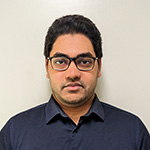 Tuesday, 1530h / Hynes Convention Center – Room 104
Tuesday, 1530h / Hynes Convention Center – Room 104
Mechanistic Analysis of Interface Stability in Solid-State Batteries
by Bairav Sabarish Vishnugopi
Bairav Sabarish Vishnugopi is a PhD candidate in the School of Mechanical Engineering at Purdue University. His research in Purdue’s Energy and Transport Sciences Lab (ETSL) focuses on understanding the physicochemical phenomena and coupled mechanistic processes influencing the electrochemical performance, degradation, and safety of Li-ion and beyond Li-ion chemistries. Part of his PhD research examines the electrochemical, transport, mechanics, and thermal interactions in various battery systems, including Li-ion, Li-sulfur, and solid state Li-metal batteries. A major focus of his research is investigating the origin and propagation of disparate failure modes in Li-metal batteries. His work on Li-metal batteries with liquid electrolytes interrogates the chemo-mechanical and transport mechanisms underlying the growth of dendrites and solid electrolyte interphase failure. In the context of solid state batteries, he has analyzed a wide range of degradation modes, including filament evolution, contact loss, and interphase growth, and developed a systematic connection to fundamental descriptors involving the morphological, kinetic, and thermal stability of solid-solid interfaces. Specifically, his research aims to decipher the role of such degradation pathways under operational extremes like fast charging. He has published over 20 journal papers on different energy storage topics and received the R. H. Kohr Graduate Student Fellowship in Mechanical Engineering for his research contribution through physics-based modeling, simulation, and analysis.
Industrial Electrochemistry and Electrochemical Engineering Division Student Achievement Award
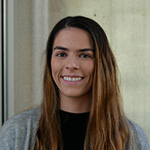 Monday, 1520h / Hynes Convention Center – Room 107
Monday, 1520h / Hynes Convention Center – Room 107
Quantifying Energy Losses in Electrochemical Carbon Capture Systems
by Lauren Clarke
Lauren Clarke is a PhD candidate in the Department of Chemical Engineering at the Massachusetts Institute of Technology (MIT). As a member of Prof. Fikile Brushett’s research group, she uses a combination of modeling and experiments to understand the impact of material properties and operating parameters on the performance of electrochemical CO2 separation systems. More generally, her work articulates key technical metrics for efficient, durable, and economically feasible CO2 separations.
Clarke received her MS in Chemical Engineering Practice from MIT in 2020, where she completed a one-semester industrial internship at the Shell Technology Center and Emirates Global Aluminium. She received her BS and MSc in Chemical Engineering from the University of North Dakota (UND) in 2016 and 2018, respectively. Her MSc research under Prof. Gautham Krishnamoorthy focused on implementing high-performance preconditioners and solvers into a multiphase flow simulation code to reduce computation time and improve performance. At UND, Clarke was a student athlete and four-year member of the women’s volleyball team.
Nanocarbons Division Robert C. Haddon Research Award
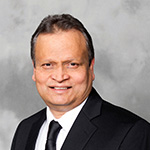 Wednesday, 1000h / Sheraton – Boston Common 5th floor
Wednesday, 1000h / Sheraton – Boston Common 5th floor
Nano Carbons in Mimicking the Early Events of Photosynthetic Reaction Center: ‘Simple’ and ‘Not-so-Simple’ Donor-Acceptor Conjugates
by Francis D’Souza
Francis D’Souza is Regents Professor of Chemistry and Materials Science and Engineering at the University of North Texas (UNT) and part of UNT’s Applied Materials and Manufacturing Processing Institute. Prior to joining UNT in 2011, he was Professor of Chemistry at Wichita State University (WSU). He received a PhD from the Indian Institute of Science, and held postdoctoral positions at the University of Houston and the Université de Bourgogne.
Dr. D’Souza’s research covers a wide area of chemistry, nanophotonics, electrochemistry, and materials science. Principal research interests include supra and nanomolecular chemistry of photosensitizer-carbon nanomaterials, advanced functional materials for light energy harvesting and photovoltaics, electrochemical and photochemical sensors and catalysts, and nanocomposite hybrid materials for energy storage and utilization. Dr. D’Souza has authored or coauthored over 475 publications, given over 400 conference talks, and edited 10 Handbooks on Carbon Nanomaterials, resulting in over 21,000 citations with a cumulative h-index of 74.
Dr. D’Souza has received honors and awards including Fellow of The Electrochemistry Society and Royal Society of Chemistry; Fulbright Specialist Scholar; ACS-DFW Section Doherty Research Award; Chemical Research Society of India Medal; GIAN Fellow of the Government of India; UNT-Distinguished Professor, Japan Society for the Promotion of Science Fellow, and WSU Excellence in Research Award. Recognition from UNT includes the Research Leadership Award, Toulouse Scholar Award, Regents Professor, and Distinguished Professor.
An active ECS member since 1993, Dr. D’Souza was a member of the ECS Board of Directors from 2004 to 2008. He previously served as Chair, Vice Chair, Secretary, and Treasurer of the ECS Nanocarbon Division and is currently a Member at Large of that division. He was instrumental in establishing and securing endowment monies for the Nanocarbon Division Richard Smalley Research and SES Young Investigator Awards. He has served as Chair or member of several Society-level committees, including the Honors and Awards Committee and Fellow Subcommittee, as well as the Acheson, Bard, Callinan, Haddon, Smalley, and Wagner Award Subcommittees. He currently serves as member of the Meetings and Vittorio de Nora Award subcommittees. For the last 10 years, Dr. D’Souza has served as Technical and Associate Editor of the ECS Journal of Solid State Science and Technology. He has co-organized over 40 symposia for the Society’s biannual meetings.
Physical and Analytical Electrochemistry Division David C. Grahame Award
 Tuesday, 1700h / Hynes Convention Center – Room 204
Tuesday, 1700h / Hynes Convention Center – Room 204
Vignettes of Charge Transfer Processes at Interfaces Inspired By D.C. Grahame and Previous ECS Grahame Awardees
by Keith Stevenson
Keith Stevenson of KJS Consulting led the development of a new graduate-level research and innovation institute in Moscow, Russia, having served as Provost, Full Professor, and Founder of the Center for Energy Science and Technology (CEST) from 2014-2022. He also designed a modern material science and engineering education program for MS and PhD students. This program delivers an interdisciplinary mix of engineering and natural sciences, and involves an industrial immersion and entrepreneurship and innovation components.
Dr. Stevenson’s research interests aim to elucidate and control chemistry at solid/liquid interfaces vital to many emerging energy storage and energy conversion technologies. He received his PhD in 1997 from the University of Utah under the supervision of Prof. Henry S. White. Subsequently, he held a postdoctoral appointment at Northwestern University (1997-2000) with Joseph T. Hupp; and a professorial appointment from 2000-2015 at the University of Texas at Austin. To date, he has published over 350 peer-reviewed publications, 14 patents, and six book chapters. He received the 2021 Society of Electroanalytical Chemistry’s Charles N. Reilley Award in Electroanalytical Chemistry and 2006 Young Investigator Award; 2012 Kavli Fellow Award; 2004 Conference of Southern Graduate Schools New Scholar Award; and 2002 NSF CAREER Award.






